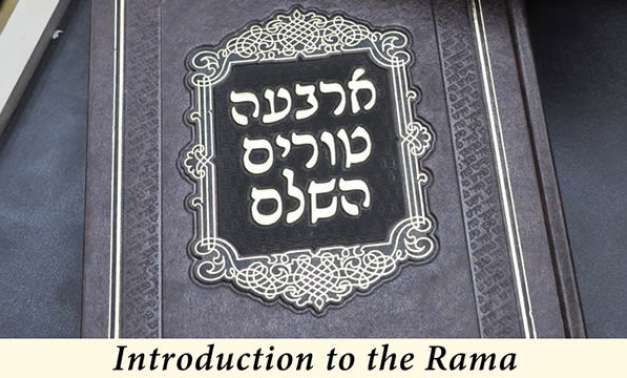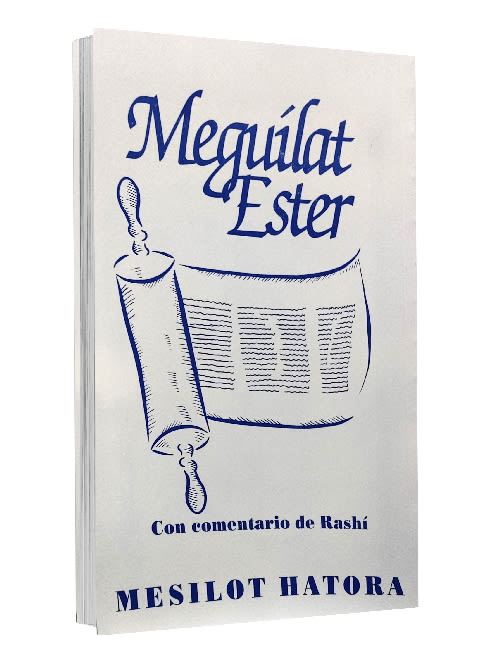
Vayeshev: Ascent from the Depths
Joseph's incarceration teaches us an important lesson that is capable of strengthening our emuna and trust even in the most difficult circumstances...

"…and Joseph was handsome of form and handsome of appearance." (Genesis 39:6).
In its seemingly double language, the holy Torah is telling us that Joseph was exceedingly good-looking, “handsome of form”, and that he was exacting about the way he dressed and groomed himself, “handsome of appearance”. On the surface, Rashi appears to object to the way Joseph conducts himself, for in his elaboration on the above passage Rashi says that since Joseph became the governor of his master's household, “he began to eat and drink and curl his hair; Hashem said, 'Your father is mourning and you are curling your hair? I shall incite the bear against you'.” The bear of course was Potifar's wife and Joseph's subsequent imprisonment.
Joseph knew the whole Torah for he was his father's prime student. Is it thinkable that he violated Halacha? Let's be exacting – Jacob was in mourning, for he thought Joseph was killed. Joseph was not in mourning and not limited by the restrictions of mourning such as the prohibition of haircuts and shaving. And even if you want to say that he should have been sensitive of his father's feelings as a matter of piety, the fact that he was the head butler and estate manager of such a high-ranking official as the minister Potifar, he was required to maintain an impeccable appearance, as sanctioned according to Halacha. The Shulchan Aruch permits any mourner to get a haircut after the thirty days of mourning; but for someone in a high position like Yosef, one is allowed to comb and groom himself even after seven days, or shiva.[1] The Shach remarks that combing one's hair is not a matter of pleasure or joy. Therefore, even if Joseph himself was in mourning, he would have been allowed to groom himself. Since he wasn't in mourning, why does Rashi quote the Midrash[2] that seemingly condemns Joseph?
With Hashem's illuminating our eyes, we can explain as follows: Joseph's actions are certainly in exact  accordance to Halacha and gratifying to Hashem. Yet, Hashem is fooling the Satan and preparing the groundwork for the future redemption of the Jewish People. The Satan is more than willing to have Joseph tempted by his boss's wife and subsequently thrown in prison. Unaware of Hashem's intentions, the Satan is happy as a lark: either Joseph falls prey to temptation and gets knocked down from his lofty spiritual level, or he gets thrown in prison and loses his influence and standing as Potifar's estate manager. The Satan thinks that Joseph is finished.
accordance to Halacha and gratifying to Hashem. Yet, Hashem is fooling the Satan and preparing the groundwork for the future redemption of the Jewish People. The Satan is more than willing to have Joseph tempted by his boss's wife and subsequently thrown in prison. Unaware of Hashem's intentions, the Satan is happy as a lark: either Joseph falls prey to temptation and gets knocked down from his lofty spiritual level, or he gets thrown in prison and loses his influence and standing as Potifar's estate manager. The Satan thinks that Joseph is finished.
Little does the Satan know that Joseph's incarceration is the beginning of his true rise to power and glory. We hereby learn an important lesson that is capable of strengthening our emuna and trust in the most difficult circumstances: The worst fall leads to the greatest rise. Hashem is about to bring Joseph from the deepest descent to the greatest ascent, as we see when he solves Pharoah's dreams in Parshat Miketz.
The evil inclination (EI), Satan himself, wants to convince a person that there is no hope of coping and no way to solve his current problems or prevail over his current challenges. Anyone who believes the EI falls into despair and depression. A depressed person is a defeated person.
Emuna on the other hand teaches us that there is never reason for despair, for Hashem's salvation is sudden and unexpected, oftentimes coming from a source that we never dreamed of. Such is the magnificence of Hashem's ways.
The Torah's template of the deepest descent leading to the greatest ascent is the secret of Moshiach and redemption. Look at the events that led up to the birth of King David – Yehuda and Tamar, Boaz and Ruth. Look at the circumstances of David's birth, when his own father thought that David was a mamzer, born from a forbidden relationship. These too are examples of Hashem fooling the Satan where seemingly unsightly acts become the forerunners of the House of David. What's more, both Tamar and Ruth could have easily fallen into despair for their respective predicaments appeared hopeless. They clung to emuna and instead of despair, ascended to the greatest heights of the Jewish People, becoming the matriarchs of Moshach, may we greet him soon, amen!
[1] See Shulchan Aruch, Yora Deah, 390:4
[2] The source of the above-mentioned Rashi is Breishit Raba 87:3-4







Tell us what you think!
Thank you for your comment!
It will be published after approval by the Editor.